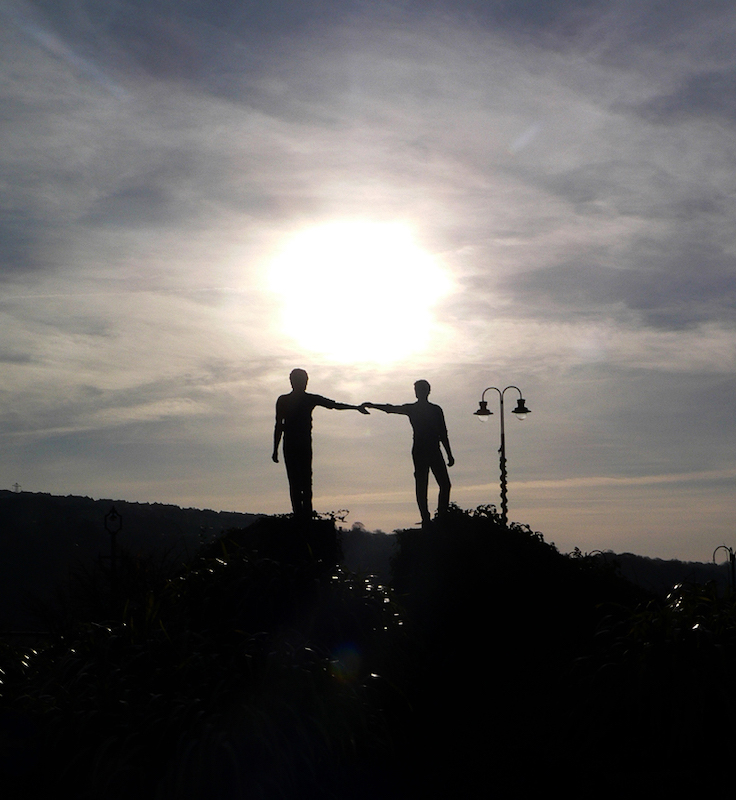Is not this the fast that I choose:
to loose the bonds of injustice,
to undo the thongs of the yoke,
to let the oppressed go free,
and to break every yoke? –Isaiah 58:6
Last year at this time, people in the United States were not fully aware of COVID-19’s existence, let alone what it would do to our nation and the world within the coming months. We have now been living in pandemic mode for eleven months and our lives have changed in ways we could have never predicted. I hear the stories of weariness and feel it from every side. The ambiguous loss with no clear end in sight, adaptation fatigue, and personal losses have worn down even the hardiest souls in one way or another.
Today’s Lesson from Isaiah 58:1-12 speaks in the midst of our weariness. I remember hearing the buzz of people across the church appropriating this phrase, “Is this not the fast that I choose” because we were unable to participate in the Eucharist and receive communion, attempting to reorient the “fast” as a spiritual discipline. The Rev. Heidi Haverkamp wrote an excellent piece on this topic for the Episcopal Café last April, so I am not going to focus on that here. Instead, consider how the river of time has flowed, taking us and our pandemic experience with it, and how this has changed the way we interpret the passage now.
Then, amid the uncertainty about what was happening, we hoped that the pandemic would be under control by the autumn. When this did not happen, we were forced again to reimagine what church looks like and what it means to be a Christian. Many of the touchstones on which we relied before the pandemic have been washed away or submerged underwater. Concurrently, these ambiguous waters have also brought forth real creativity and relevant engagement of the Gospel for modern times which will influence the way we gather as Christians in the future.
Ash Wednesday falls on February 17th this year, and our ever-changing new normal will certainly impact the way we approach Lent. Isaiah writes about the disgruntled Israelites complaining and wondering why God ignores them: ‘Why do we fast, but you do not see? Why humble ourselves, but you do not notice?’ (v.3). Isaiah replies,
Look, you serve your own interest on your fast-day,
and oppress all your workers.
4 Look, you fast only to quarrel and to fight
and to strike with a wicked fist.
Such fasting as you do today
will not make your voice heard on high.
In some ways, we sound like the Israelites. We are tired of fasting. We are exhausted by not having things the way we want them. Our tempers are short. Our reserves are running short, and many of us cannot see God in the midst of this. How then, are we to get the relief we seek?
Alfred Adler, in his theory of Individual Psychology, wrote that mental health could not be balanced by oneself—there must be a community aspect to it. He called that ‘social interest’ or ‘community feeling’. When a patient would come to him in a depressive mood, he would advise them to make a cup of tea for their neighbor and reflect on how they felt after. He noticed that they always felt better, even if it was just a little bit. Loving one’s neighbor as oneself, one of our baseline tenets as Christian people, not only draws us into deeper relationship with God, but is a path to mental wellbeing.
In light of this, what would it be like if we chose a different fast this Lent, the one that Isaiah presents in the next part of the passage?
6 Is not this the fast that I choose:
to loose the bonds of injustice,
to undo the thongs of the yoke,
to let the oppressed go free,
and to break every yoke?
7 Is it not to share your bread with the hungry,
and bring the homeless poor into your house;
when you see the naked, to cover them,
and not to hide yourself from your own kin?
8 Then your light shall break forth like the dawn,
and your healing shall spring up quickly;
your vindicator shall go before you,
the glory of the Lord shall be your rearguard.
This is still our call—to reach out to others and accept that others may be reaching out to us in our wearied and downtrodden state. May we invite God to help build a community amidst our losses and distress. With God’s help, we can be renewed by God’s light breaking forth like the dawn, and may our healing spring up quickly.
____________________________________
The Rev. Danae M. Ashley, M.Div, MA, LMFT is an Episcopal priest and marriage and family therapist who has ministered with parishes in North Carolina, New York, Minnesota, and is serving part-time as the Associate Rector at St. Andrew’s Episcopal Church, Seattle and a therapist at Soul Spa Seattle, LLC. She has written for a number of publications, produced a play, and has been featured on several podcasts regarding fertility struggle and faith. Danae’s favorite past times include reading, traveling with her husband, dancing with wild abandon to Celtic music, and serious karaoke.

